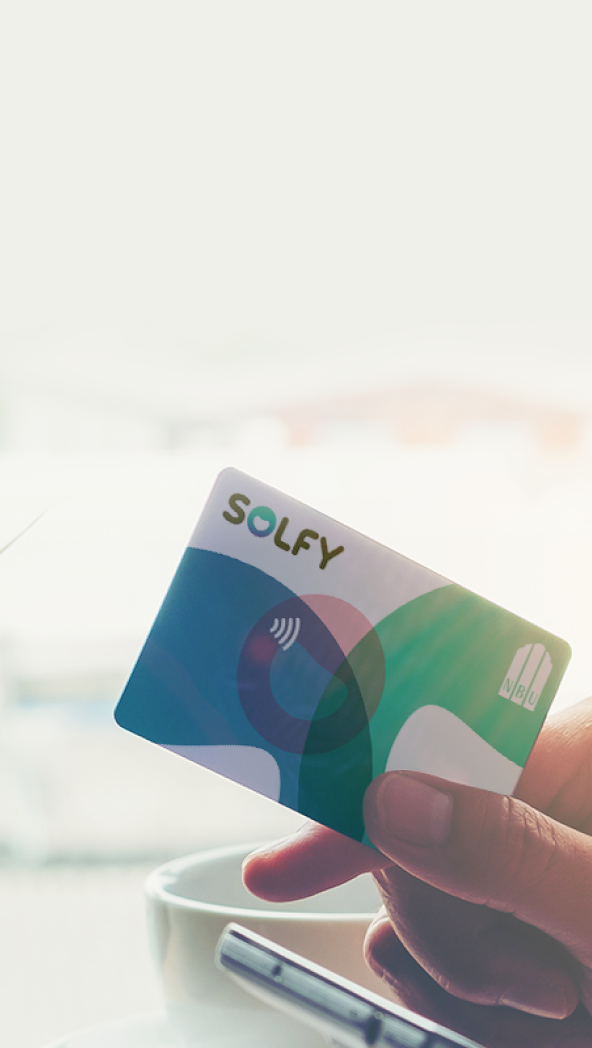Uzbekistan, Latvia Embark on New Phase of Cooperation
23.10.2013
2237
UzA, 18 October 2013
As it has been reported earlier, President of the Republic of Uzbekistan Islam Karimov traveled October 16-17 to the Republic of Latvia with a state visit on the invitation of President Andris Berzins.
The visit’s major events were due October 17.
The official meeting ceremony of the high ranking guest took place at the palace of the Latvian President.
During the negotiations, the heads of our two states discussed the current state and prospects of bilateral relations and examined the major dimensions of cooperation in political, financial and economic, cultural and humanitarian areas. The two leaders exchanged views also on current issues of regional and international affairs.
It was stressed that Uzbekistan and Latvia are important reliable partners for one another and that the two nations maintain enduring, traditionally robust, close and friendly ties instrumental for prolific interaction.
Noteworthy is that the talks started with a bright occasion, namely, the President of the Republic of Uzbekistan has been rewarded with Latvia’s highest state award – the “Cross of Gratitude” Order of the first degree, while the President of the Republic of Latvia has been prized with the Order “Buyuk Khizmatlari Uchun” (For Great Services) of Uzbekistan. This implies, on the one hand, the reciprocal acknowledgement of services rendered by the heads of our two states to the development of bilateral relations, and on the other, it underscores the community of aspirations and shared interest in the further enhancement of cooperation.
The interaction between Uzbekistan and Latvia is built on a solid agreement base. Since the establishment of diplomatic relations in 1992, in excess of four dozens interstate treaties and intergovernmental agreements have been signed between our two nations across practically the entire spectrum of cooperation areas.
The inter-parliamentary bonds have also been evolving dynamically; the legislatures regularly exchange visits, while the existing expertise in the lawmaking activity has been undergoing mutual study and enrichment. A group of cooperation with Uzbekistan’s Oliy Majlis was established in 2010 in the Latvian Saeima. Likewise, a group of cooperation with Latvia’s legislative body was instituted in the Uzbek parliament in June 2012.
Constructive and regular consultations are established between foreign affairs ministries of the two countries.
During the talks, the two parties covered interaction issues in combating terrorism, extremism, drug trafficking and in search for meaningful answers to other contemporary threats and challenges. The Latvian side highly appraised the assistance being provided by Uzbekistan to Afghanistan in the economic and social rehabilitation of that country as well as the cooperation of Uzbekistan with nations contributing to the international coalition for security assistance.
The two parties underlined the similarity and closeness of their perspectives and stances on all the issues under discussion.
The leaders of Uzbekistan and Latvia concentrated their attention on issues of trade-economic, investment and humanitarian cooperation.
Notwithstanding the rather vast distance between our two countries, an active interaction has been established in the sphere of transport and communications (including automobile and other international shipping), education, science, agriculture, accreditation and metrology, information technologies, tourism and other areas.
A sustainable agreement and normative foundation has been said to be created to further the economic dialogue. Agreements on economic and industrial cooperation, on assistance and protection of investments as well as those on avoiding double taxation are in force between our two countries.
Latvia is one of Uzbekistan’s chief trade partners in the European Union. Owing to the secured most-favored nation regime, the mutual trade turnover grew by almost 20 percent in 2012 to exceed 246 million US dollars, while in the first half of the current year it has already made 126 million dollars.
Uzbekistan supplies Latvia with high quality cotton fiber, engine and oil lubricants, pharmaceutical goods and other types of produce. And the imports from Latvia largely constitute equipment, vehicles, plastic materials as well as logistic services.
Investment cooperation has been expanding, as well. To date, 22 enterprises with Latvian investments are operating in Uzbekistan, while more than 40 entities have been opened in Latvia with the involvement of Uzbek companies.
Our two countries continue with the implementation of important joint projects in transport and communications, scientific and technical development, tourism, education and healthcare. The high intensity of these schemes and the considerable accomplishments being made in their realization are considered a major outcome of the regular dialogue at the highest level as well as the contacts between government representatives and business circles.
As it was underscored, Uzbekistan and Latvia wield a remarkable potential in the economic sphere. The two sides addressed issues related to the even more effective use of the capacities of our two countries.
It is noteworthy that Uzbekistan and Latvia are identical ranking economic partners. The two economies are mutually complementary. This argument is backed by the results of the participation of Uzbek companies in the international exhibition Riga Food-2013 that took place last September. As part of that exposition alone, contracts and agreements worth more than 100 million US dollars were inked for the supply of fruits and vegetables from Uzbekistan to Latvia and other European nations.
Also stressed was the significance of bolstering bilateral interaction in such an important sector as transport and communications. The two countries face the challenge of cashing in the transit potential to a maximum effect in order to raise the competitiveness of the functioning transport corridors for access to major regional and global markets.
Uzbekistan and Latvia also boast immense cooperation potential in agriculture, tourism, science, education and healthcare.
The Uzbek side said it is interested in the attraction of Latvian entrepreneurs to the interaction in travel industry, in the exchange of expertise in training specialists in this sphere.
Uzbekistan’s such cities as Samarkand, Bukhara, Khiva, Tashkent, Shahrisabz are well known to the people of Latvia and the Baltic states in general. The magic world of brilliant colors in the ancient Maverannahr, its rich history and traditions make everyone wish to return to these lands once they visit them.
A business forum took place in Riga as part of the state visit of the President of Uzbekistan. It served as a platform to discuss opportunities for joint business in Latvia and Uzbekistan, new aspects of cooperation, development of logistics industry in Latvia in the interests of Uzbekistan, and the food industry in Uzbekistan oriented to consumers in Latvia.
The importance of direct work of business circles has been underlined. This, for instance, is going to facilitate the satiety of the Baltic market with outstanding produce that meets all requirements of the EU. It is obvious that if any Uzbek-origin product is sold today in Latvia, it is not always imported directly, but supplied through third countries. Such a practice triggers growth in the cost of Uzbek goods. Uzbekistan could supply not only foods to the Baltic market, but also dried fruits and vegetables, including for the commercial fleet. It is a prerogative of business, and thus the two sides agreed to urge businesspeople for action on this front. The agreement base is there for this to work in full swing, and everything is contingent on direct contacts.
Equally steady has been the evolution of cooperation in the cultural and humanitarian area. The erection of monuments to our great ancestors – to the celebrated scholar and statesman Mirzo Ulughbek in 2004 and the outstanding physician and philosopher Abu Ali Ibn Sino in 2006 – in Riga is suggestive of the high reverence the Latvian people feel toward the Uzbek people and the richest scientific, cultural and spiritual heritage of our nation.
Partnership ties have been enlarging between the two capital cities. So have the creative contacts between the Alisher Navoi State Academic Grand Theater of Uzbekistan and the Latvian National Opera House. Regular have been art and photo exhibitions, film days, concerts, while folk groups from the two countries take part in various cultural events held in Uzbekistan and Latvia, respectively. Notably, musicians from Latvia are recurrently present at the Sharq Taronalari International Music Festival in Samarkand.
Especially significant has been the interaction in the education sphere. Uzbekistan comes fifth in terms of the number of international students attending Latvian higher education institutions. Some 200 young people from our country study currently in this nation’s universities.
The negotiations in Riga produced a Joint Declaration of President of the Republic of Uzbekistan and President of the Republic of Latvia. In addition, documents on cooperation in healthcare, environmental protection, transport and transit of freight, along with the expansion of commercial ties, tourism and investments have also been signed.
President Islam Karimov traveled to the Saeima of Latvia and held talks with Speaker Solvita Aboltina.
The head of our state enquired into the activities of the Latvian parliament.
The leader of Uzbekistan and the chief lawmaker of Latvia addressed issues relating to the development of inter-parliamentary cooperation between our two countries.
The Uzbek President met also with Latvia’s Prime Minister Valdis Dombrovskis, where the discussion topics included practical aspects in the implementation of agreements reached during the visit.
Accompanied by the President of Latvia Andris Berzins, President Islam Karimov laid wreath to the Monument of Liberty and paid tribute to the memory of those who fell for the freedom of Latvia.
This concluded the state visit of President of the Republic of Uzbekistan Islam Karimov to the Republic of Latvia.
The outcomes of the visit will indisputably afford a new impetus to the advancement of relations between our two countries and elevate them to a qualitatively new level.















